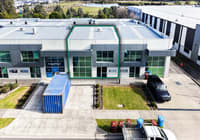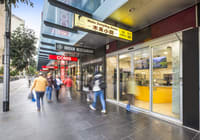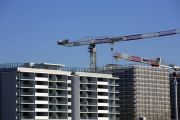
Melbourne records busiest month on record for hotel rooms sold
Melbourne experienced its busiest month on record for the number of hotel rooms sold in March, a take-up rate that analysts say dispels lingering concerns that the market is oversaturated after a big lift in supply over the last five years.
The Formula 1 Grand Prix, Melbourne International Comedy Festival and a swathe of international stars performing concerts in March trumped the impact of even Taylor Swift’s Melbourne visit in February 2024 for the city’s hotel market.

For the first four months of 2025, each month has recorded a higher amount of hotel rooms sold than in the same month of the previous year, according to hotel research by STR. In March, 1.144 million hotel rooms were booked – up 69,000 from March 2024, and the highest on record.
That healthy demand is keeping up with the more than 5500 new hotel rooms that have been added to the Melbourne market since 2020. Once the 2030 rooms still in the pipeline come into the market, supply will have increased 34 per cent from the total five years ago.
Melbourne now has the largest number of hotel rooms of any capital city, at 27,391, and Sydney is in second place with about 3000 rooms less, according to research by JLL. Melbourne’s number of hotel rooms surpassed that of Sydney in 2022.
Five hotels are scheduled to be completed by the end of 2025, including Accor’s Mercure Hotel West Melbourne with 192 rooms, and IHG’s Holiday Inn and Hotel Indigo Bourke St Mall in the CBD, adding 452 rooms to the market.
“Occupancy wasn’t at a record because of new supply, but what it shows is that underlying demand in Melbourne is super strong, and that’s built around events,” Adrian Williams, chief operating officer at Accor Pacific, told The Australian Financial Review.
“The events calendar in Melbourne and major cities around Australia is really strong, and that supports demand into our hotels.
“I don’t think that we have an oversupply of hotel rooms. We’re seeing really good growth in occupancy in key capitals… [In] the longer term, we’re very, very comfortable with the growth and further growth potential in Melbourne, as there is further growth potential in all major markets across the country.”
Accor recently launched the Hyde Melbourne Place in the CBD following its agreement with Ennismore to rebrand the former Melbourne Place hotel. It’s the first of the Hyde global brand to open in the Pacific region, and another is to open in Perth at the end of the year.
The hospitality conglomerate also recently announced that it was taking over three hotels run by a Malaysian platform – two in Australia and one in New Zealand.
Dean Dransfield, a long-time transactions and development adviser to hoteliers, said Melbourne had been developing a lot more hotels than Sydney in the last decade, especially in the last two to three years.
“I’ve been aware that their occupancy has been a little bit softer than Sydney because of the number of new hotels, but they actually have been selling more hotel rooms than they’ve ever sold before,” Dransfield said. “In the next five to 10 years, Melbourne hotels will look like a very good investment.
“Melbourne has been gradually catching up on Sydney because what Melbourne has been able to do has been to grow its airline arrivals, both international and domestic, and Sydney hasn’t been able to do that.”
Peter Harper, managing director and head of investment sales at JLL Hotels and Hospitality Australasia, said Melbourne’s market had shown an incredible ability to absorb the supply of new hotels.
“The demand for those hotels comes from its position and calendar of major events, along with the general economic base, population growth, year-round leisure appeal and so on,” Harper said.











